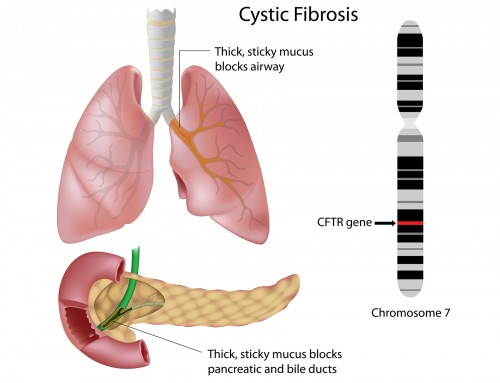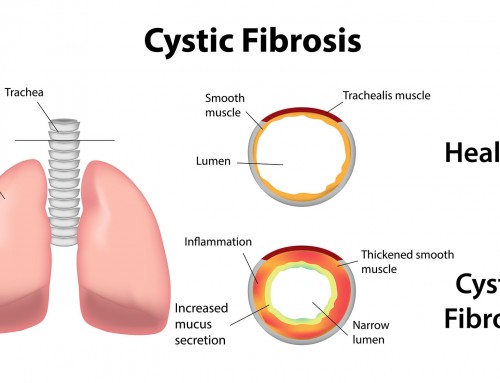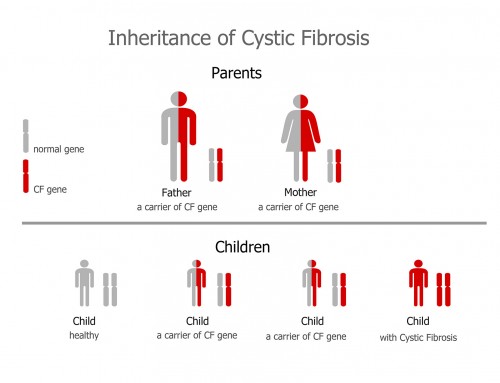How to minimize complications of Cystic Fibrosis?
Cystic fibrosis is caused by a mutated CFTR gene and cannot be cured. However, upon diagnosis of the disease, the doctor may suggest different ways to manage the condition at home in order to minimize complications caused by cystic fibrosis.
Diet
People affected with cystic fibrosis may not be able to absorb sufficient nutrients from food due to lack of digestive enzymes. A diet high in fiber, salt or calories may be beneficial to avoid malnutrition or counter the effects caused by cystic fibrosis. Pancreatic enzyme tablets, vitamins or antacids may also be taken to aid digestion.
Hydration
Drinking lots of fluid is encouraged for people with the disease as it can help to rehydrate the thick mucus in the airways. Fluids should include sports drinks in addition to water, as it helps to replenish the electrolyte concentration.
Physical activity
Regular exercise helps to maintain good lung function and it can also help to loosen mucus in the lungs. It is also important to stay hydrated during exercise.
Avoid smoking or other irritants
Smoking and exposure to secondhand smoke should be avoided for people with cystic fibrosis. Irritants such as pollen and mold should also be avoided if possible, as their presence can worsen the symptoms.
Vaccinations
Regular influenza and pneumonia vaccinations are recommended. Children with cystic fibrosis are more prone to developing complications when their immune system is weak and compromised.
Personal hygiene
Frequent hand washing is the best way to prevent germs and protect against infections. Hands should be washed before eating, after using the bathroom, after contact with body fluid, after animal petting, after being around a sick person and after touching public surfaces.
Infection control
Avoid face-to-face contact with people who have respiratory illness. This can help to minimize the chance of being sick and causing associated complications.
References:
Cystic Fibrosis Foundation
Cystic Fibrosis Worldwide
DNA In the News2017-04-06T20:44:09+00:00




